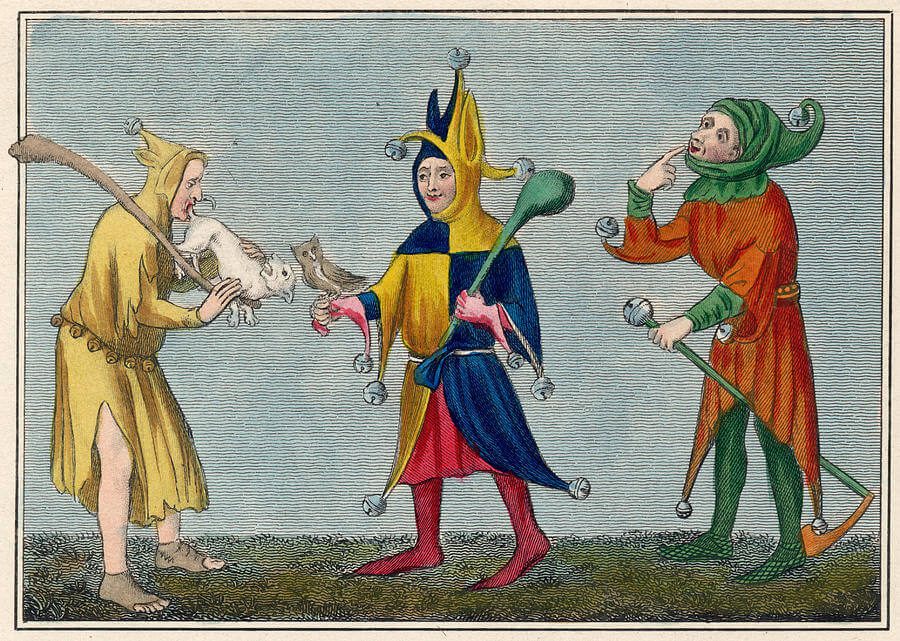Soumya speaks in defence of humour. From the court jester of yesteryears to humourists, cartoonists, satirists, comics today, we have travelled a long way. An exclusive for Different Truths.
 Have you heard the joke about the sky? It goes over your head.
Have you heard the joke about the sky? It goes over your head.
Actually, this is the only sort of humour that is a no-no, jokes that you don’t get. Everything else goes.
Jokes are meant to be funny, and that’s it. Fullstop. Political correctness is for politicians. Jokes are meant to let off steam. They can be crass, mean, off colour, misogynist, racist, casteist, ageist, sexist, anti-something or the other, hurting the sentiments of someone or the other. Damn it, it’s a means of letting off steam. It has to be this way. Irreverence is a must.
Jokes are meant to be funny, and that’s it. Fullstop. Political correctness is for politicians. Jokes are meant to let off steam. They can be crass, mean, off colour, misogynist, racist, casteist, ageist, sexist, anti-something or the other, hurting the sentiments of someone or the other. Damn it, it’s a means of letting off steam. It has to be this way. Irreverence is a must.
In the medieval period, courts had jesters or fools or bhands, whose job was to crack jokes that would cause an ordinary citizen to have his or her head adorn a spike. But the king needs the truth, which the yes-men can’t provide, and so the jester does. The village idiot had a similar role in rural society.
Today’s humorists, cartoonists, satirists, and comics play this role. Therefore, they should be provided latitude that is greater than the societal norm.
Another thing, humour is situational. On the wrong occasions, it is a flop. The standard response of a failed humourist — ‘you had to be there’ is actually true. And it’s never original, merely recycled.
Another thing, humour is situational. On the wrong occasions, it is a flop. The standard response of a failed humourist — ‘you had to be there’ is actually true. And it’s never original, merely recycled. There is a Mark Twain story about a  Connecticut Yankee visiting King Arthur’s court and finding, among other things, that stale jokes of 19th century America are already stale jokes in England, a few millennia ago.
Connecticut Yankee visiting King Arthur’s court and finding, among other things, that stale jokes of 19th century America are already stale jokes in England, a few millennia ago.
The same stories attributed to Santa and Banta are also attributed to Pat and Mike, or Van der Meer, depending on whether you are Irish or South African, and Poles, Scots, Afrikaners, Oklahomans, and Han Chinese compete with Punjabis, Gujaratis, Sindhis and Madrasis for the pride of place in their respective cultures’ humour pantheon. The absence of three wise men and a virgin is reputed to explain the non-appearance of Jesus Christ in Punjab, Poland, Ireland, Arkansas, and South Africa amongst other places.
Just as the first man to invent swear words took a giant leap for civilisation, because this was the alternative of bashing in the other fellow’s head with a club, so too, the first politically incorrect humourist. Because his insensitive jokes were the alternative of taking out pogroms or starting wars against those slightly different from him in some manner or another.
Just as the first man to invent swear words took a giant leap for civilisation, because this was the alternative of bashing in the other fellow’s head with a club, so too, the first politically incorrect humourist. Because his insensitive jokes were the alternative of taking out pogroms or starting wars against those slightly different from him in some manner or another. The humorists are, therefore, the greatest peaceniks on earth.
The only humourist who should be punched is the one who forgets his punch line.
When we discuss what is permitted and what is not in humour, it should be a funny piece. Funnily enough, whenever I try to write on any serious topic, it inevitably turns out funny, even speeches in seminars.
 When we discuss what is permitted and what is not in humour, it should be a funny piece. Funnily enough, whenever I try to write on any serious topic, it inevitably turns out funny, even speeches in seminars. But writing on limits to humour, I have become dead serious.
When we discuss what is permitted and what is not in humour, it should be a funny piece. Funnily enough, whenever I try to write on any serious topic, it inevitably turns out funny, even speeches in seminars. But writing on limits to humour, I have become dead serious.
Humour is a serious business. It’s all that keeps us from going insane.
Photo from the Internet





 By
By

 By
By
Absolutely! Well done, Soumya!